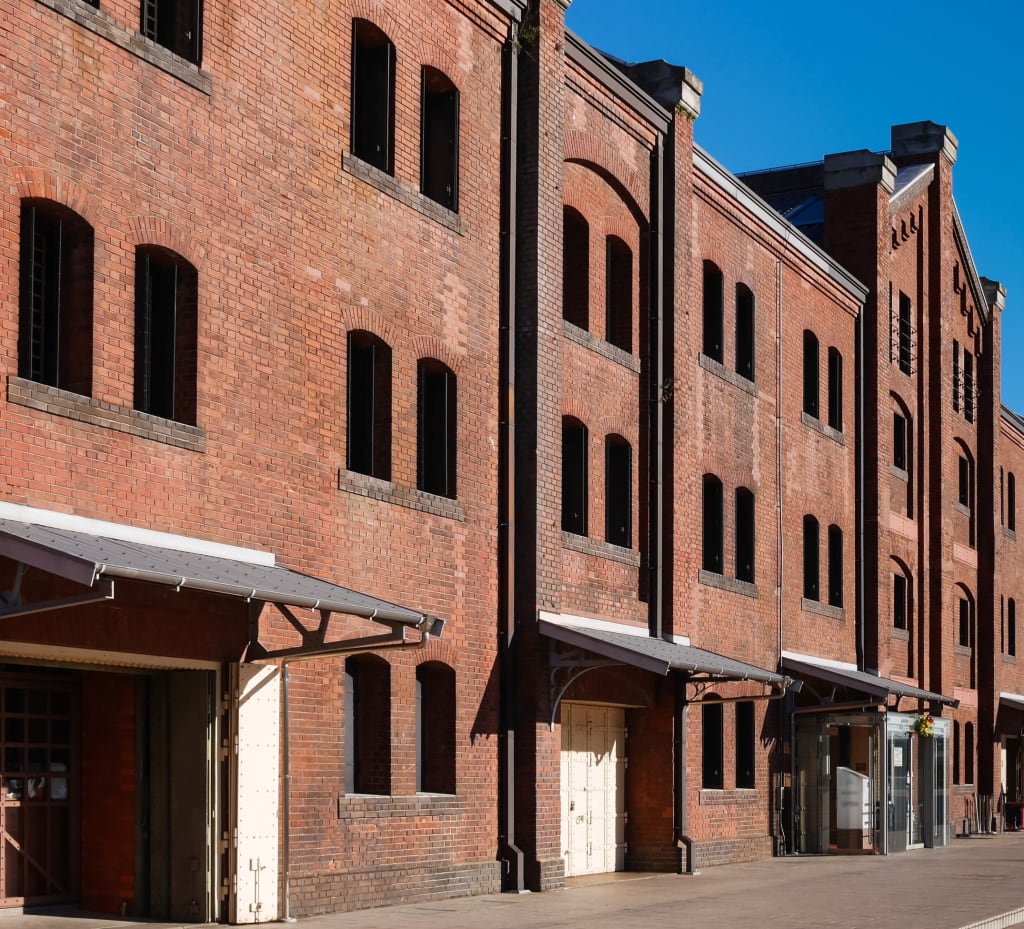
CRUZ CONTROL
Troubling Night in Jersey City
By Jeffrey Marshall
“What should we do with the body?” It was a question that leaped out of my mouth before I really had a chance to think. Sgt. O’Hanlon and I stood over the late Cruz Gonzalez, a fast-talking, shifty-eyed drug dealer whose mix of menace and fake bonhomie we knew all too well. Cruz’s street name was FC, which we’d been told stood for “Fast Cruz.” Now, Cruz was no longer moving at any speed, and his all-black ensemble was missing his black ballcap with the familiar “NY” logo. Cruz was a Yankees fan to the end, but O’Hanlon’s shot had taken off his hat when it went through his right temple.
O’Hanlon sighed. “Jesus, let’s take him to the Meadowlands. You could park a tank in there and nobody would see it.”
“Really? In the squad car?”
“You got a better idea, Kresiwicz?” There was some heat in his reply, but also an undercurrent of weariness. He knew I didn’t.
“No, no,” I replied. “Do – do we have anything to wrap him up with?” I looked down at Cruz, who’d fallen into a vaguely fetal position. A streetlamp at the end of the block provided barely enough light for the two of us cops to see each other. Cruz’s body could have been a black garbage bag not unlike a few others at the far end of the alley.
“There’s an old blanket in the trunk of this vehicle,” O’Hanlon said. “That should be fine.” He moved to the brick wall beside us and bent over as I stared down at what remained of Cruz.
We were in the Warehouse District, an old and decaying section of Jersey City, New Jersey, a city whose value to the world had peaked in the early 20th Century, when its factories spewed out goods like cigars, camphor oil, lumber and bricks. The district, which had even housed the headquarters of the Great Atlantic and Pacific Tea Company – known everywhere as A&P – had slid in the past century into decay and disrepair, though its stolid brick warehouses stood tall and imposing in the darkness. Now, business was still being done there – the drug business, secreted in the recesses of high-ceilinged buildings whose owners had long ago passed into history.
A few hundred yards away was the Hudson River; we were close enough to smell the water, an unpleasant but utterly familiar emanation of oil, sewage, mud and God knows what else. It was an odor that permeated large swaths of the once-thriving industrial waterfront around New York City, a smell the warehouses seemed to have trapped and accentuated.
My heart was racing. It was enough to be shaking down drug dealers, as O’Hanlon intimated he had been doing for years, but to murder one was a few steps over the line, in my opinion. I’d come along on the last couple of meets, but I let O’Hanlon do the talking; I was little more than another presence. And when this had gone south – when Cruz threatened to send an anonymous email to the Jersey City Police Department about cops on the take – O’Hanlon didn’t waiver. He pulled out his service revolver, grabbed Cruz and blasted him before he could amplify on his threat.
“Christ,” O’Hanlon had said, sounding almost apologetic. “I didn’t want to do that. He didn’t leave me any choice.” Even in that faint light, I could read his face and body language; he wasn’t his usual swaggering self.
Now, O’Hanlon was quiet, thinking. Then he turned to me. “I’ll get the blanket out of the trunk. Put your gloves on and search the body for anything you can find. We gotta make sure there is nothing that might identify him.”
When he turned toward the car, parked at the end of the alley, I pulled out my latex gloves and put them on, fumbling a bit as I did so – my hands were shaking. I bent over and put my hands on Cruz. He wasn’t a big man, and it was easy to roll him over on his back. His face was contorted in something like a grin, and I covered it with his cap and started searching. Not surprisingly, there was a set of keys in his left jacket pocket. I took those and put them in one of my pants pockets; we’d need to drive his car away, somewhere. It was a black Dodge Charger, parked at the other end of the alley like a horse waiting for his rider.
Next, I checked his pants pockets. His wallet was in his right front pocket, and a business card in his left. I peered at it, trying to make out the words. It seemed to say, “Hector’s Light and Magic.” What the hell? I put the card and the wallet in my pants.
It was 3 a.m., and in the Warehouse District, no one was about, certainly none that showed any interest in what might have been a gunshot. It wasn’t a place for the curious. The moonlight was scant, casting only a wan light on the concrete sidewalks. Ragweed sprouted in untidy clumps at the base of the building; at least something lived there.
Not far to the north, the gleaming towers of finance rose high above the river – a salute to the new Jersey City and the migration of traders and money managers from lower Manhattan that began in the 1980s. That was a world away from where we were, a world where police were seldom called.
O’Hanlon approached with the blanket, a thin gray job, lightly frayed at the edges. It wasn’t something you’d want to send any human off in, but somehow its seediness seemed appropriate. He looked at me. “You get everything?”
“Yeah, just his wallet, keys and a business card of some kind. I have them on me now.”
“Okay, good.” He spread the blanket next to the body, on the cracked pavement, and we rolled Cruz onto it and wrapped him up loosely.
The car wouldn’t make it down the narrow alley between two buildings, so we had to carry the body, probably about 50 yards. As I said, Cruz was a smallish man, so it was relatively easy. O’Hanlon had his shoulders and I had his legs, but I couldn’t see my feet and stumbled once on an empty can and lost my balance and, with that, my hold on Cruz. His bottom half tumbled into the alley.
“Fuck’s sake, Kresiwicz, hang onto him. We’re almost there.”
“I know, Sarge. I tripped over a can. I’m okay.” I listened to see if the noise had brought any reaction, but there was nothing; the street was as moribund as its balance sheet.
When we reached the car, we laid Cruz on the ground behind the trunk while O’Hanlon fished for his keys. He punched the trunk icon on the fob and it swung open, revealing a vest and a pair of handcuffs, but nothing else. We lifted the body and swung it over the lid, dropping it as gently as a baby onto a crib. O’Hanlon pushed the trunk closed and moved wordlessly to the driver’s side. I got in, feeling moisture spreading under my collar.
“Okay, now we gotta go to the Meadowlands,” O’Hanlon said. “I know a place in Secaucus that’s very isolated, but we gotta walk into the marsh and hide the body as best we can.”
“Alright.” I didn’t know what else to say. O’Hanlon started the car and headed west, rolling through the stop signs at the empty intersections. Broken windows gaped at intervals like recesses in a mausoleum.
Something had been bothering me. “Sarge, is there a bullet they can trace?”
He turned to me with obvious annoyance. “No. That’s one of the first things I checked. The shell casing was against the wall. I have it.”
“That’s good,” I said.
“More than good,” he replied. “Essential. You have to believe they will identify him whenever they find him, though dental records, if nothing else. But that could be a long time off.”
“Right.”
Just then the radio crackled and we heard Joyce, the late-night dispatcher. “Car 23, there’s a report of shots fired off 10th Street by Jacobus. Can you respond?” The address was in another distressed part of the city, full of aging post-war apartment buildings, where shootings were regular events.
I looked over at O’Hanlon, my mouth open. I saw him clench his teeth.
“Joyce, that’s a no. We’re at a warehouse on 4th, checking out a report of a B&E. We’re in there with our weapons drawn.” I was amazed he’d concocted a story on the spur of the moment.
“Okay, 23. I’ll send someone else. Over and out.”
“Wow, quick thinking, Sarge.” I glanced at him and nodded.
He blew out a breath. “Had to pull that one out of my ass.” He turned to me and chuckled. As the car swung onto the ramp for Routes 1 and 9, I caught a glimpse of the moon, a whitish sliver inverted like a saddle, far above the horizon. I shivered. It had been a long night, and it was going to get a lot longer.
##
About the Creator
Enjoyed the story? Support the Creator.
Subscribe for free to receive all their stories in your feed. You could also pledge your support or give them a one-off tip, letting them know you appreciate their work.





Comments
There are no comments for this story
Be the first to respond and start the conversation.